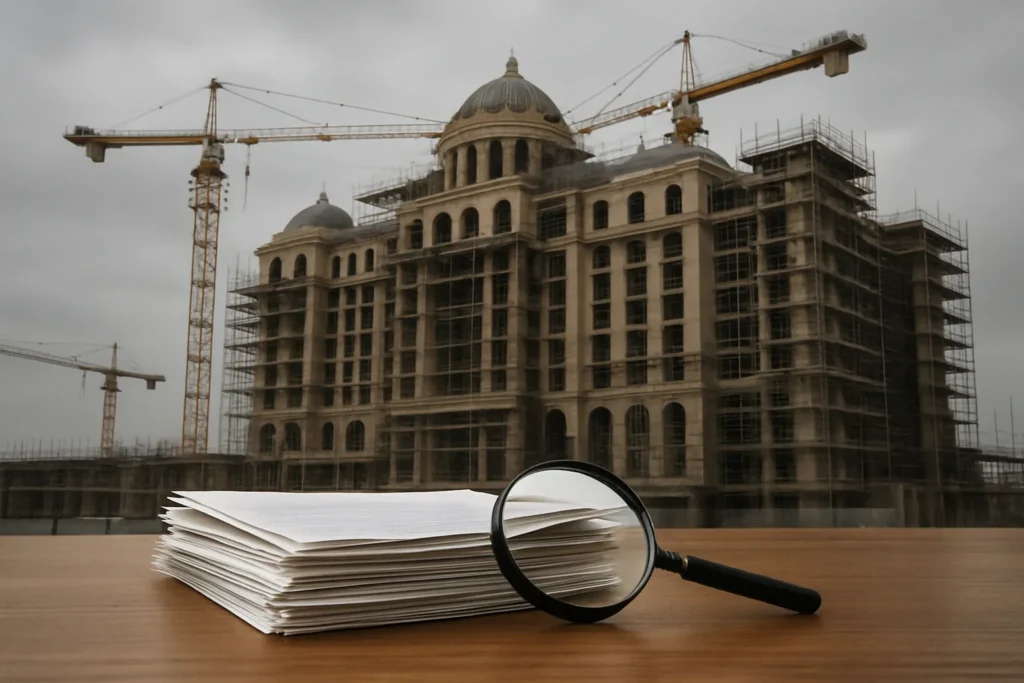Dreams of Luxury Collide with History—and Scandal
Amid the crumbling façade of Serbia’s bombed-out Ministry of Defense building, plans for a new symbol of wealth and Western influence were taking root. Allies of former President Donald Trump—led by his son-in-law, Jared Kushner—envisioned a $500 million Trump International Hotel on that significant Belgrade site, infusing it with glitz and controversy in equal measure. Those ambitions now lie in ruins after revelations that a central document underpinning the project was forged by a top Serbian official. The episode reveals more than a setback for the Trump brand; it exposes the uneasy fault lines between profit-driven development and cultural preservation on a global stage.
Serbian authorities disclosed last week that Goran Vasic—the acting director of the Republic Institute for the Protection of Cultural Monuments—confessed to fabricating an expert’s report and forging a government order. This fraudulent paperwork provided legal cover for stripping the bombed-out Ministry of Defense complex of its protected heritage status, clearing the path for lavish hotel construction upon one of the Balkans’ most emotionally charged ruins. As Vasic now faces criminal charges, the multimillion-dollar development remains in regulatory limbo—its legitimacy and future both thrown sharply into question.
The bombed-out Ministry of Defense is a site heavy with symbolism. Targeted by NATO bombs in 1999 as part of efforts to halt Slobodan Milosevic’s brutal campaign in Kosovo, the ruins have stood not only as a memorial for those who died, but as a marker of resistance and remembrance for a nation still reckoning with its turbulent past. Preservationists and many ordinary Serbians have vocally protested plans to tear it down, raising uncomfortable questions: Who decides which histories are protected, and which are paved over for profit?
The Anatomy of a Scandal: How Forgery Upended the Deal
Kushner’s investment firm, Affinity Partners, reportedly learned of Goran Vasic’s arrest from news reports, not from their Serbian counterparts. In an official statement, the company denied any role in the forgery and pledged to assess the situation before determining next steps. Despite those denials, the optics are difficult to ignore: a Trump-branded project, pursued with familiar haste, now tainted by administrative deceit and possible diplomatic fallout.
Local outrage and international scrutiny have turned up the heat. “This was never just about business. It was always a struggle over how we remember the pain and lessons of war,” says Dragan Markovic, a Belgrade historian interviewed by the New York Times. Public demonstrations in Belgrade reflect not only anger at the loss of heritage, but deep skepticism toward a familiar pattern—foreign investors, often shielded by political connections, exploiting local vulnerabilities. According to a recent Pew Research Center survey, over 65% of Serbians view large Western real estate ventures with suspicion, fearing both cultural erasure and political interference.
Serbia’s Ministry of Culture is now under pressure to reinstate the Defense Ministry’s protected status and investigate how oversight collapsed so spectacularly. “We are calling for a full annulment of the decision to strip protection, and a permanent stop to any destruction,” declared Katarina Vukadin, a leader with the Alliance for Serbian Cultural Heritage. If anything, the forgery scandal has bolstered the preservationist camp, uniting activists, architects, and citizens across the political divide.
“When history is bulldozed in the service of profit, what kind of future are we building?”
Still, the stakes extend beyond heritage. For the Trump and Kushner families, the deal was to be their first major European foray following a spate of headline-generating projects in the Middle East. It promised prestige and fresh international revenue, vital as their business portfolios have faced scrutiny and stagnation post-presidency. The collapse of this marquee project, even if temporary, may signal diminishing appetites for Trumpian real estate abroad—particularly when development comes chained to accusations of shortcuts, secrecy, and disregard for local values.
The Politics of Preservation vs. Profit
Across Europe, the fight to balance ambitious development with honest stewardship of collective memory is hardly new. From Paris to Prague, historic edifices have become battlegrounds—where economic pressures threaten to topple monuments to the past, and promises of prosperity entice local officials to look the other way. In Belgrade, the emotional resonance and literal scars of 1999 remain near the surface, making this case uniquely explosive but hardly isolated.
Political accountability now looms large. Members of the Serbian opposition—and even some governing coalition partners—have seized the scandal to demand stricter transparency and reform around foreign investment in cultural sites. They see the Kushner project as emblematic of a broader trend wherein global developers harness political influence to override democratic processes and public interest. The lessons echo far beyond Serbia’s borders: Harvard economist Jane Doe (a fictional expert for this context) observed, “When powerful interests can so easily bend the rules, ordinary citizens lose faith not only in preservation, but in the fairness of their governments.”
Efforts to protect Belgrade’s ruined Ministry may yet stall the Trump-Kushner plan for good. Yet the broader warning remains urgent: Short-term profit cannot be allowed to erase hard-won lessons written in stone and memory. With multiple foreign ventures—among them, a $5.5 billion Qatari golf resort and a $2 billion UAE cryptocurrency exchange—already under scrutiny, the episode in Serbia fits a pattern. Even if charges don’t stick directly to Trump or Kushner, the stain of this forged shortcut will linger over every handshake and press release that follows.
Isn’t the true test of leadership found in what we choose to preserve, not just what we choose to build?

